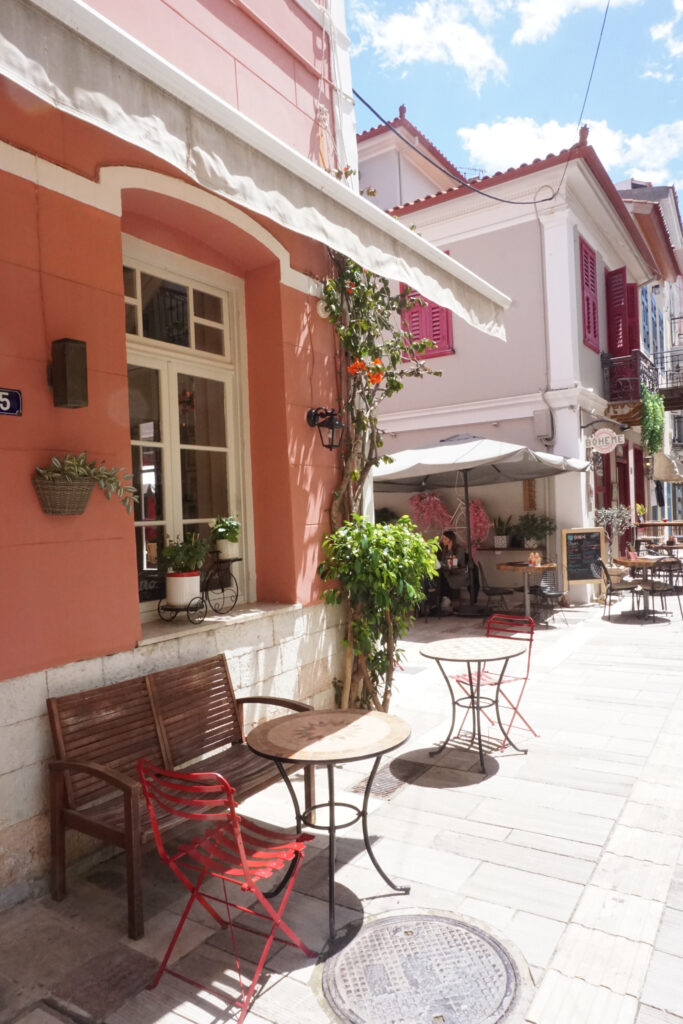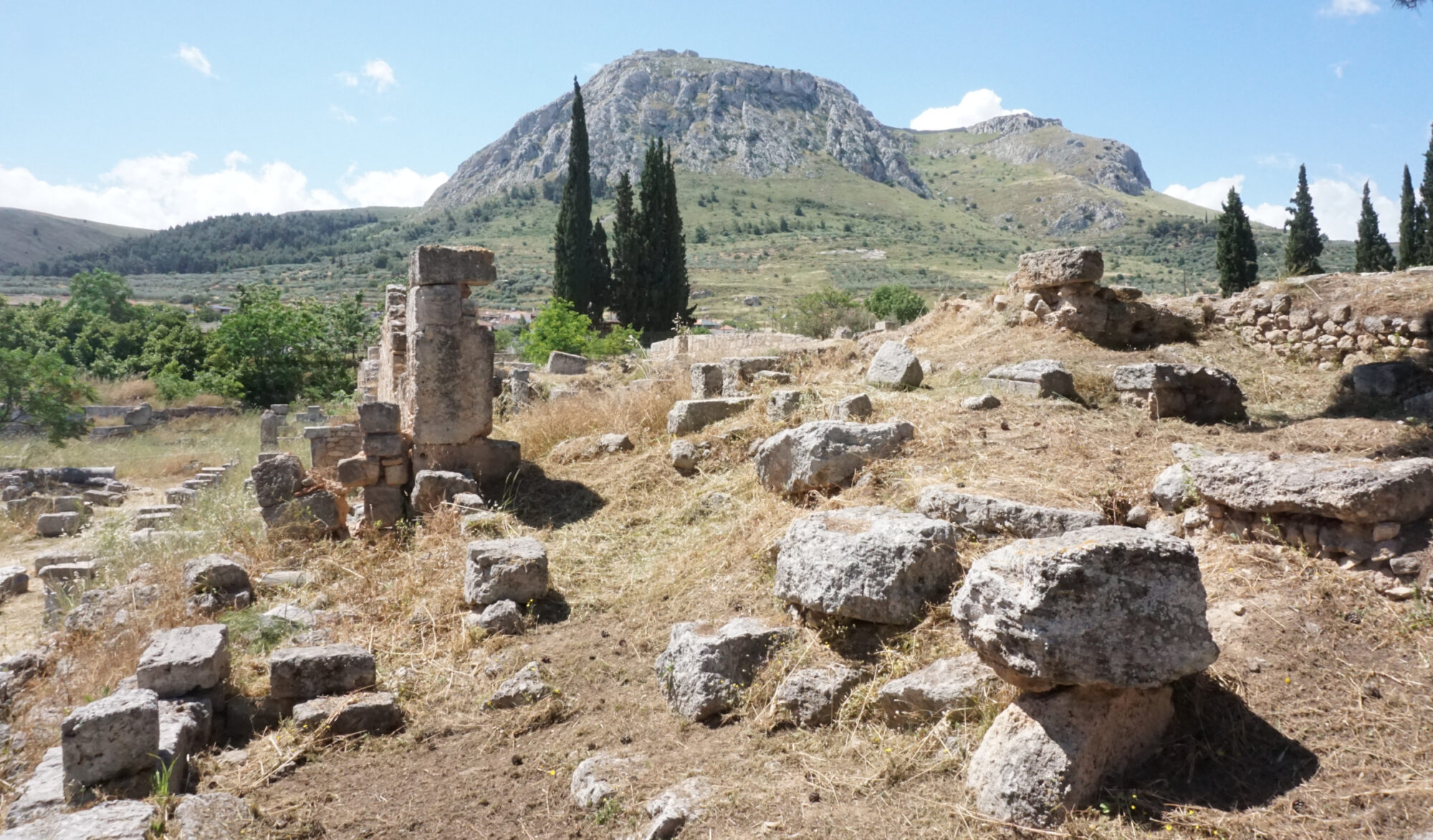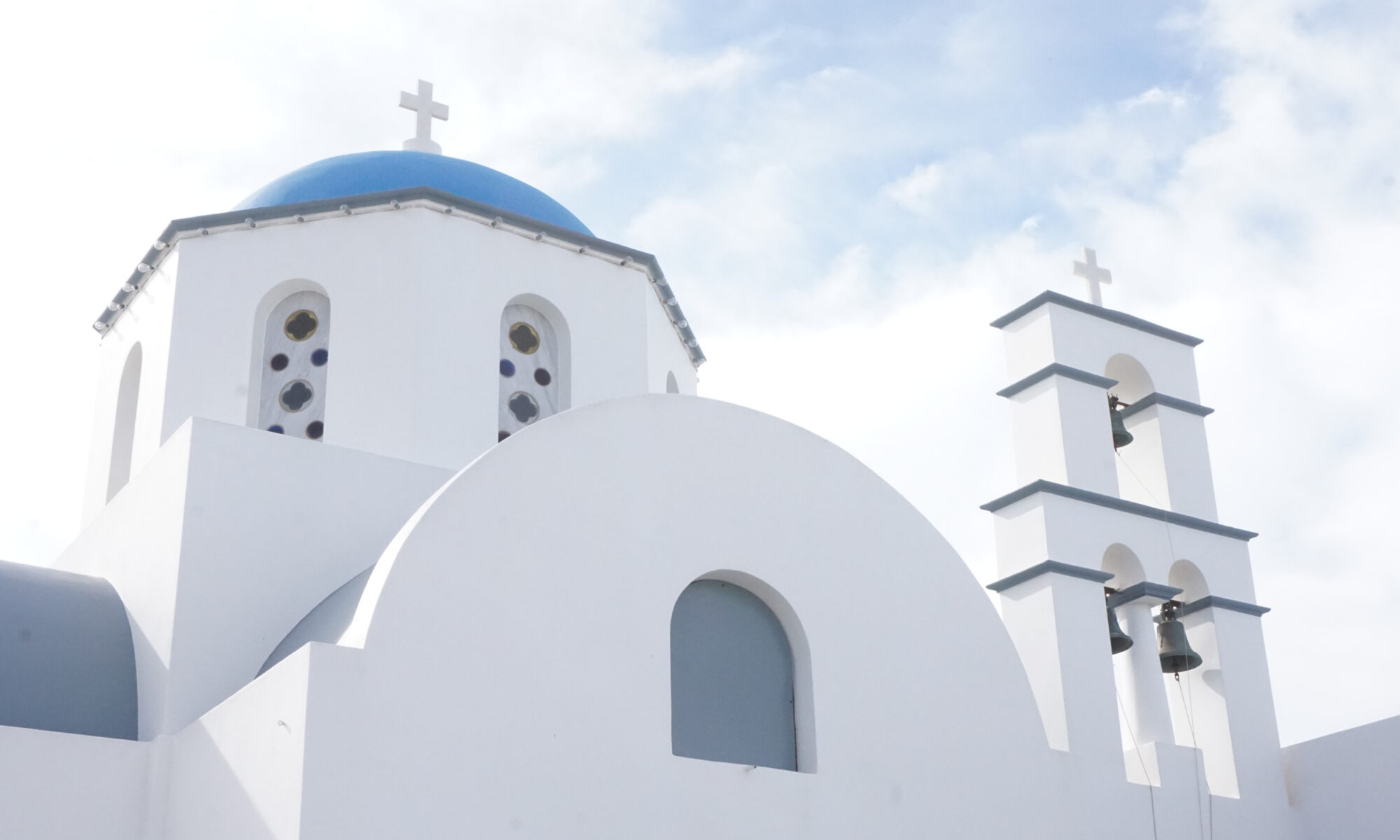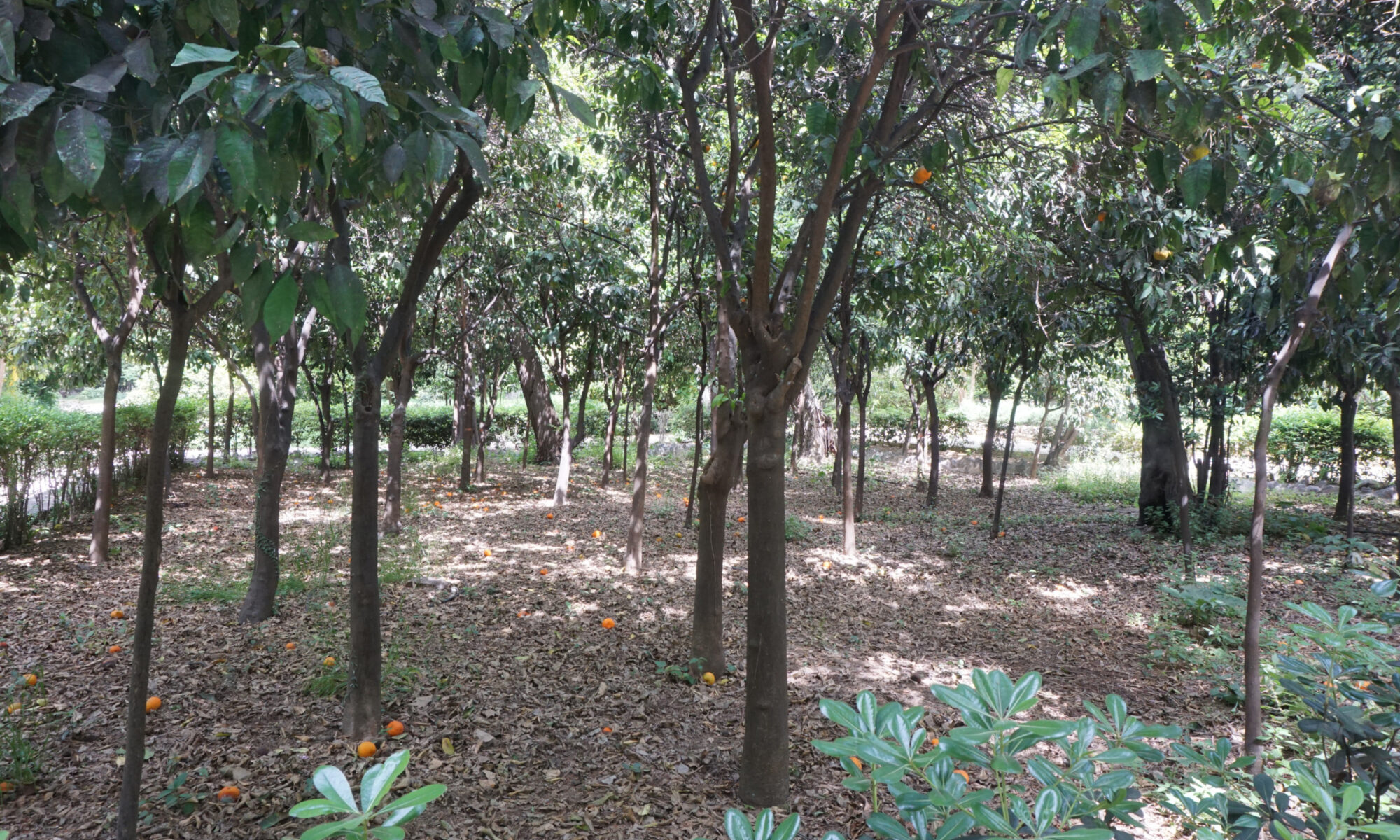Psalm 119:18 (ESV)—Open my eyes, that I may behold wondrous things out of your law.
A paved path of cobblestones and marble winds through the white-washed buildings in Fira. The Aegean blue rooftops and yellow and red bougainvillea add pops of color to the white landscape. Shop owners greet passersby while setting up displays of scarves, clothing, and jewelry, and restaurant managers beckon the tourists to eat at their establishments. The photo-perfect Greek experience spills before the tourist’s eyes while they wander the town and gaze toward Oia in the distance.
This characteristic picture of Greece, all white-washed buildings and blue rooftops, is pretty but inadequate to represent the whole country. There is more than picturesque Santorini when we open our travel schedule to the whole country: olive groves in the countryside, the colorful medieval village of Nafplio, rock formations topped with monasteries in Meteora, not to mention Athens.
As in travel, opening our eyes to the “wondrous things” helps us discover an all-powerful God who wants his servants to find delight in obeying his Word. The psalmist in Psalm 119 expressed desire to keep God’s word and counted himself as insufficient to see the wondrous things in God’s law without God’s guidance.
Like the psalmist, we are inadequate to understand God’s statutes without his sufficiency. God teaches us Truth to ingrain in us a longing to obey his perfect Word. In this, our obedient relationship, God reveals the wondrous things of his law—a generous Father who wants us to see his sufficiency.
Without God, the wondrous things of his law remain hidden. To see these Truths and delight in his law, we can admit our inadequacy to God and then commit to studying his Word. Our study may include praying for understanding before and after we read his words, studying the context of scripture, and reading commentaries to clarify his messages. This deeper learning strengthens our relationship with God, who shows goodness to his obedient servants.





